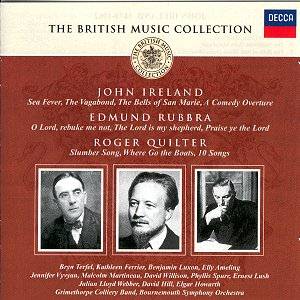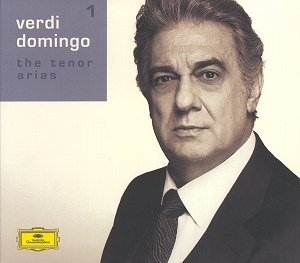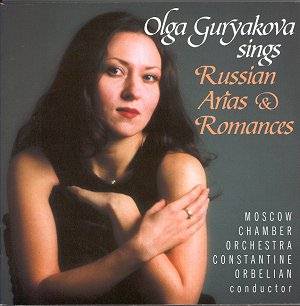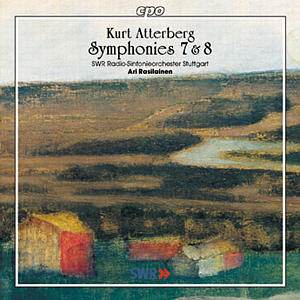 Composer: Roger Quilter
Composer: Roger Quilter
Works: Slumber Song (from “Where the Rainbow Ends”), Where Go the Boats (from “Child Songs, op. 5”), Now Sleeps the Crimson Petal, op. 3/2, Weep You No More, op. 12/1, Old English Popular Songs (arranged): Down By the Sally Gardens, Drink to Me Only, Ye Banks and Braes; Now Sleeps the Crimson Petal, op. 3/2, The Fair House of Joy, op. 12/7, To Daisies, op. 8/3, Love’s Philosophy, Over the Mountains
Performers: Bryn Terfel (baritone), Malcolm Martineau (pianoforte), Stephen Ryde-Weller (treble), Nicholas Richardson (treble), Kathleen Ferrier (contralto), Ernest Lush (pianoforte), Julian Lloyd Webber (violoncello), John Lenehan (pianoforte), Benjamin Luxon (baritone), David Willison (pianoforte), Elly Ameling (soprano), Rudolf Jansen (pianoforte), Jennifer Vyvyan (soprano), Phyllis Spurr (pianoforte)
Recording: Various recordings from 1951 to 1995
Label: DECCA
Roger Quilter’s oeuvre occupies a unique and often underappreciated space within the English art song tradition. His works, imbued with lyrical beauty and harmonic richness, draw upon a rich tapestry of English poetry and folk influences. This collection, featuring a variety of esteemed performers, showcases his ability to evoke emotion through succinct musical phrases and poignant text settings. The album serves as a testament not only to Quilter’s melodic ingenuity but also to the enduring legacy of English song, particularly in the wake of the early twentieth century.
Bryn Terfel’s interpretations of Quilter’s songs are particularly noteworthy, as his robust baritone imbues the melodies with a palpable warmth and depth. In “Slumber Song,” Terfel navigates the gentle rise and fall of the melodic line with an ease that belies the technical challenges inherent in Quilter’s writing. His nuanced phrasing and dynamic control elevate the performance, allowing the listener to fully appreciate the song’s tender lullaby quality. Accompanist Malcolm Martineau complements this with a sensitive touch at the piano, deftly balancing supportive harmonies while bringing out the lyrical contours of the vocal line.
In terms of recording quality, DECCA’s engineering shines throughout the collection. The clarity and separation of voices and instruments are commendable, allowing the subtleties of Quilter’s textures to emerge without overwhelming the listener. For instance, the pairing of Julian Lloyd Webber’s cello with John Lenehan’s piano in “Where Go the Boats” adds a layer of warmth that enhances the song’s reflective quality, embodying the spirit of childhood wonder that Quilter so masterfully captures.
Kathleen Ferrier’s contributions, especially in “Weep You No More,” showcase her unparalleled ability to convey deep emotion through her contralto voice. The recording from 1951 captures her rich timbre, yet it is the interpretative choices—such as her careful attention to the text and the shaping of phrases—that make this performance stand out. Ferrier’s mastery is further complemented by the sensitive piano accompaniment by Phyllis Spurr, who maintains a delicate balance throughout, ensuring that the piano never overshadows the vocal line.
Comparatively, while this collection features several notable performances, it is Ferrier’s rendition that resonates with an emotional potency rare in contemporary recordings. Her ability to articulate the text with clarity and her instinctive understanding of the underlying emotional currents set a high standard that is echoed, albeit differently, in the interpretations of other vocalists in this collection.
The diverse array of performances included within this compilation—from the youthful exuberance of the treble voices in “The Holy Boy” to the haunting melancholy of “Now Sleeps the Crimson Petal”—illustrates Quilter’s versatility as a composer. Each performer brings their own interpretative lens to these works, resulting in a rich tapestry of sound that is both historically significant and artistically rewarding.
This collection of Quilter’s works is a compelling invitation to explore the nuances of English song. It achieves a remarkable balance between historical fidelity and artistic expression, offering a comprehensive survey of a composer whose contributions deserve greater recognition. The performances, anchored by the exceptional talents of the featured artists, breathe life into Quilter’s music, making this recording an essential addition to the library of any classical music enthusiast.


